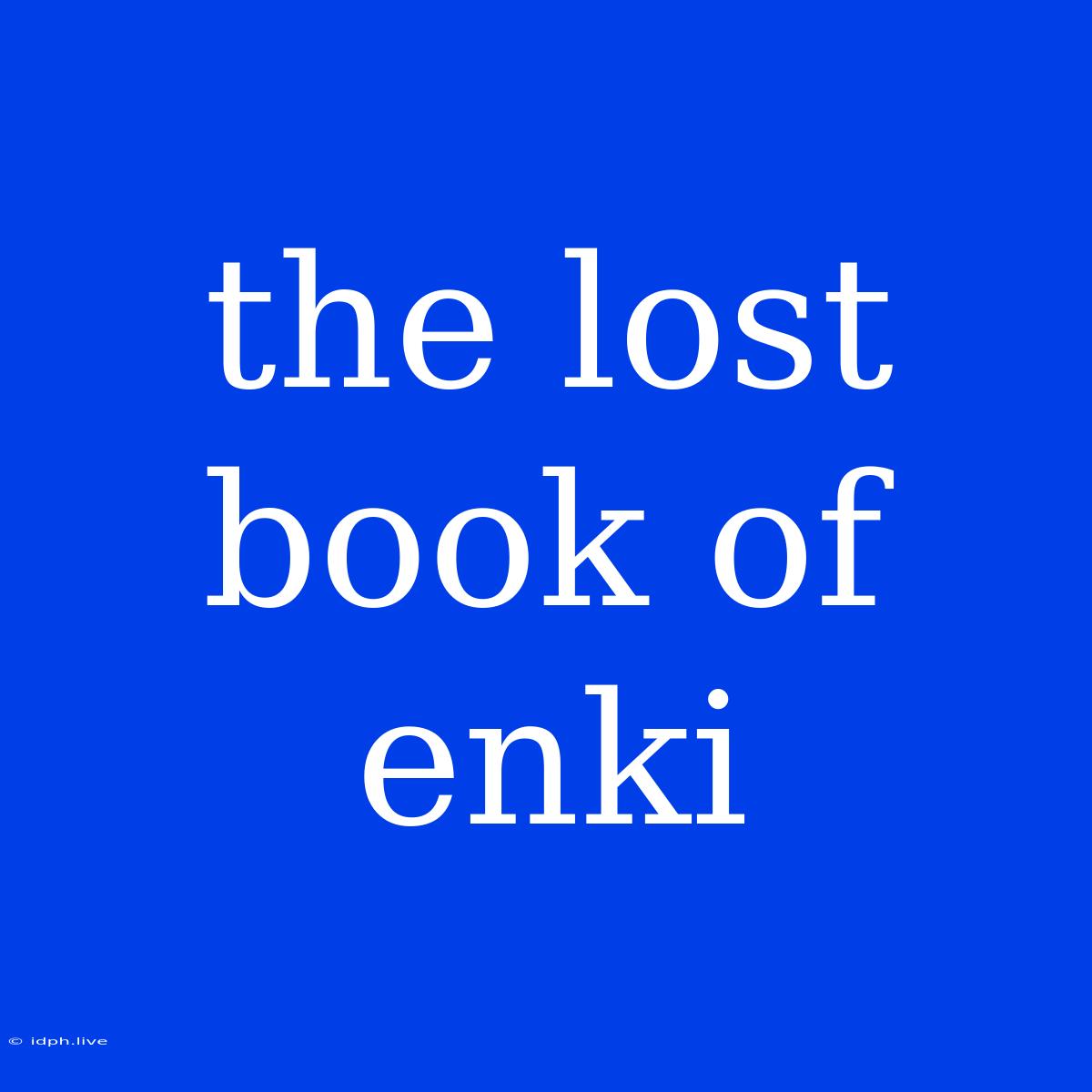The Lost Book of Enki: Unraveling the Secrets of Ancient Sumerian Lore
The Lost Book of Enki, also known as The Earth Chronicles, is a controversial and captivating collection of ancient Sumerian texts purportedly translated by Zecharia Sitchin. It claims to reveal a hidden history of mankind, revealing the true origins of our species and the influence of extraterrestrial beings on our civilization.
Who Was Enki?
Enki, also known as Ea, was a major deity in the Sumerian pantheon. He was considered the god of wisdom, water, creation, and magic. He was believed to have played a key role in the creation of humankind and the development of civilization.
Key Concepts in "The Lost Book of Enki"
The book presents a unique perspective on human history, outlining several key concepts:
- Anunnaki: The Anunnaki are a race of extraterrestrials who came to Earth from the planet Nibiru in search of gold. They established a mining operation in the Persian Gulf and created humans to serve as laborers.
- Genetic Engineering: The Anunnaki, according to Sitchin, genetically engineered humans by mixing their DNA with that of existing hominids. This explains the sudden evolutionary leap in human development.
- The Flood: The book presents a different interpretation of the biblical flood, suggesting it was a deliberate act by the Anunnaki to wipe out a rebellious human race.
The Controversy Surrounding "The Lost Book of Enki"
"The Lost Book of Enki" has sparked debate and controversy since its publication. Critics argue that:
- Sitchin's translation is inaccurate: They claim Sitchin misinterpreted Sumerian texts and imposed his own interpretations on them.
- The book is pseudoscience: Critics believe the book relies on speculative interpretations and lacks scientific evidence.
- The book promotes alien conspiracy theories: Some see it as an attempt to discredit established scientific theories and promote sensationalist ideas.
The Appeal of "The Lost Book of Enki"
Despite its criticisms, the book remains popular for several reasons:
- Intriguing narrative: The story of the Anunnaki and their interaction with humanity presents a compelling and alternative perspective on our history.
- Search for meaning: The book taps into the human desire to understand our origins and place in the universe.
- Challenge to traditional beliefs: It challenges established scientific and religious interpretations of the past, leading to a reassessment of our understanding of history.
Conclusion
"The Lost Book of Enki" remains a fascinating and controversial work, sparking debate about the nature of our origins and the influence of the ancient Sumerian civilization. Whether you believe Sitchin's translation and interpretations or not, the book raises important questions about the history of mankind and our place in the universe.

